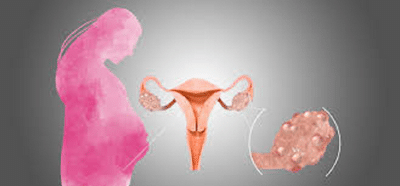PCOS: The risk of PCOS is steadily increasing among women. We often don't recognize its early signs, which can later become quite serious. Let's explain them.

Symptoms of PCOS
Common Symptoms of PCOS : PCOS, or Polycystic Ovary Syndrome, is a condition most women hear about but often fail to recognize. The most difficult part is that the condition doesn't appear suddenly, but rather begins gradually with small signs: missed periods, frequent acne, or unusual changes in the body. Many of us dismiss these symptoms as stress, dietary issues, or hormonal imbalances. Let's explain why.
How can we identify?
If PCOS is detected early, its effects can be largely controlled. This not only protects future fertility but also reduces the risk of serious diseases like diabetes. So, let's take a look at the early warning signs your body may be giving.
Irregular periods
Not every woman's period lasts 28 days; sometimes stress, travel, or sleep disturbances can cause a change. However, in people with PCOS, this difference is significantly increased. Periods are delayed by more than 35 days or sometimes even absent for months. Many women experience the opposite. When they do get their period, they experience heavy bleeding and fatigue. This is because ovulation is not regular in PCOS, leading to hormonal imbalances and disruption of the body's rhythm. If you constantly wonder whether your period will come this time, this is a sign worth paying attention to.
Not losing weight or gaining weight rapidly.
Have you ever felt like no matter how hard you work, your weight just won't come off? This often happens to women with PCOS because their bodies become insulin-resistant, meaning they can't process sugar properly. This makes it easy to gain weight, especially around the belly, and difficult to lose. This isn't a matter of laziness or willpower. It's the result of hormonal changes within the body.
Hair growth in unwanted places
Hair on the chin, fine lines on the upper lip, and hair growth on the stomach or chest are all common signs of PCOS. Doctors call it hirsutism, but most women simply call it unfair. In PCOS, the body's androgen levels increase, causing hair to grow in areas where it normally doesn't. Frequent waxing or threading may provide some relief, but if the hair returns repeatedly, thicker, and coarser, it's a clear sign of hormonal changes.
thinning of scalp hair
This is one of the most confusing aspects of PCOS: while unwanted body hair grows, hair loss also occurs on the head. Many women notice their ponytails thinning or hair loss. These changes occur gradually, not suddenly. If you notice excessive hair loss or your parting line appears wider, don't take it lightly.
dark patches or marks on the skin
Not every sign of PCOS is related to periods or weight. Sometimes, it can manifest on the skin. Dark, soft, or thickened patches may develop on the back of the neck, armpits, or thighs. This is called Acanthosis Nigricans and is a sign of insulin resistance. These patches themselves are harmless, but they indicate that the body is having trouble handling blood sugar, and this is a key part of PCOS.
Difficulty in conceiving
Many women discover they have PCOS when they're trying to conceive. Because ovulation isn't regular, conceiving becomes difficult. This doesn't mean pregnancy is impossible; it just takes some time and a doctor's help. Often, when tested, women realize that the signs were there all along, but they simply didn't pay attention.
You may also like

Thomas Frank admits one Tottenham star 'struggled a bit' against Man United and gives Romero update

Russia's Lavrov says work under way on Putin's order on possible Russian nuclear test

'True statesman': Shashi Tharoor extends birthday wishes to LK Advani

Trump signals no shutdown compromise with Democrats as senators schedule rare weekend session

Kerala tribal booth achieves first 100 pc electoral roll revision in single day







